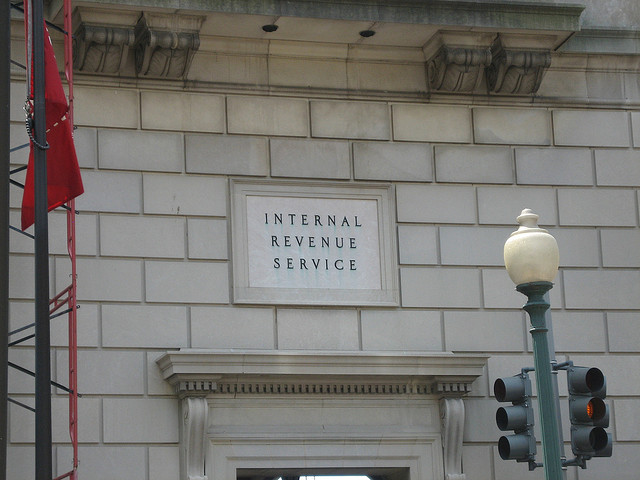The Internal Revenue Service (IRS), America’s tax collector, has been under fire in recent years. In 2009 and 2010, the agency used terms like “Tea Party” to scrutinize conservative groups’ applications for tax-exempt status, which lead to resignations and Congressional inquiries. In 2015, the agency announced that hackers had accessed its taxpayer information databases, comprising the returns of more than 300,000 people. Meanwhile, the IRS has also been working to combat corporate inversions — transactions in which American companies merge with smaller companies based abroad to legally avoid tax liability — and improve tax compliance through artificial intelligence.
These stories have all come against the backdrop of budget cuts and personnel reductions at the IRS, which had $1.2 billion less funding in 2015 than in 2010. The cuts came as the IRS’ workload increased due to changes from the Foreign Account Tax Compliance Act and the Affordable Care Act. As a result, over 8 million phone calls from taxpayers went unanswered during the 2015 tax season, and the Treasury Department has estimated that each dollar cut from IRS funding results in $6 lost from tax collections. The nation’s taxpayer advocate wrote in 2013 that the agency “desperately needs more funding.”
The impact of the political process on IRS funding and operations was the subject of a 2015 study published in the Journal of Public Policy, “The Political Economy of Tax Enforcement: A Look at the Internal Revenue Service from 1978 to 2010,” that looks at the effect of the current President’s political party on the level of resources available to the IRS and their allocation within the IRS. Sutirtha Bagchi, assistant professor of economics at Villanova University, used IRS budget and personnel figures over time to examine whether presidential administrations use executive power to affect IRS resources and priorities and thus influence the effective tax rate to support their larger policy goals.
The study’s findings include:
- Neither the President’s party nor the party in control of the House has a statistically significant effect on the size of the overall IRS budget or the size of its overall workforce.
- Democratic control of the Senate is correlated with an increased IRS budget and workforce.
- The President’s party has a statistically significant impact on the number of IRS enforcement personnel when both houses of Congress are controlled by Democrats.
- The President’s party has a statistically significant impact on the number of corporate income returns audited by the IRS, with 5 percent more on average performed under Democratic administrations. The party in control of the houses of Congress has no such statistically significant impact.
- The President’s party has a statistically significant impact on the number of individual income returns audited by the IRS, with 4 percent more on average performed under Democratic administrations. The party in control of the houses of Congress has a mixed impact of smaller magnitude.
The study’s findings suggest that while the President is unable to control the overall budget of the IRS, he or she can change the agency’s direction within its budget by shifting employees from or toward positions as criminal investigators and revenue officers, Bagchi explains. And, because Democratic presidents are more likely to favor strong tax enforcement, these changes then result in more audits of corporations, individuals and estates under Democratic administrations.
Related research: A 2014 study in the Journal of the American Taxation Association, “The Effect of Tax Authority Monitoring and Enforcement on Financial Reporting Quality,” looks at the relationship between tax enforcement and the accuracy of businesses’ financial reporting. A 2014 study in Contemporary Accounting Research, “The Reputational Costs of Tax Avoidance,” examines whether firms whose executives engage in aggressive tax avoidance strategies face reputational impacts.
Keywords: politics, IRS, taxes, partisanship


Expert Commentary